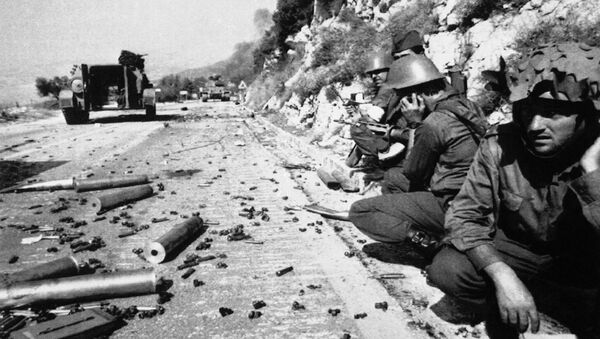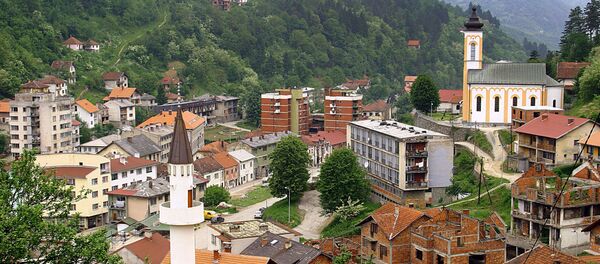MOSCOW (Sputnik) – The Serbian War Veterans' Society cannot envisage improved Serbian-Croatian ties until Zagreb takes responsibility for its role in the civil war and alleged ethnic cleansing committed 20 years ago, the group’s leader told Sputnik.
Mile Milosevic, president of the group that incorporates veterans who participated in various conflicts across the former Yugoslavia during the period 1990-1999, ruled out hope of better ties in light of the events that took place 20 years ago.
“Not until Croatia pays reparations, ensures the return of Serbian refugees and extends every right enjoyed by citizens of Croatian nationality for those Serbs,” he stressed.
Milosevic called for the total eradication of right-wing ideology and symbolism in Croatia, and the restoration of the free legal and physical functioning of the Serbian Orthodox Church, before diplomatic ties could begin to be normalized.
“Croatia must also impartially demarcate the border with Serbia along the Danube River,” the war veterans' group leader added.
Mile Milosevic said participants of the 1990-1999 wars in the former Yugoslavia view Croatia’s preparations to mark the 20th anniversary of Operation Storm "with sadness and indignation."
"All this happened with the consent of the United States and their vassals in the EU, as well as with the help of NATO," Milosevic said.
He decried the fact that despite tribunals and internationally recognized violations, the estimated 250,000 surviving Serbian refugees have been left unprotected.
"Justice hardly ever prevails," he stressed.
The armed conflict began when Croatia declared independence on June 25, 1991. Croatian forces fought the Yugoslav People's Army and Serbian factions supported by the leadership in Belgrade.
The International Criminal Tribunal for the former Yugoslavia initially sentenced three Croatian generals to lengthy prison terms on charges of war crimes, only to subsequently strike down the rulings.
On Friday, three non-governmental organizations launched a website called "Storm in The Hague" in anticipation of the anniversary of Operation Storm.
One of the NGOs’ representatives estimated that only half of the Serbian refugees that fled Krajina 20 years ago have returned. Nearly 33,000 are thought to remain mostly in Serbia and Bosnia and Herzegovina as refugees.
Croatia and Serbia established diplomatic relations in September 1996. A border dispute along the Danube remains the biggest point of contention between the two former Yugoslav Republics.





